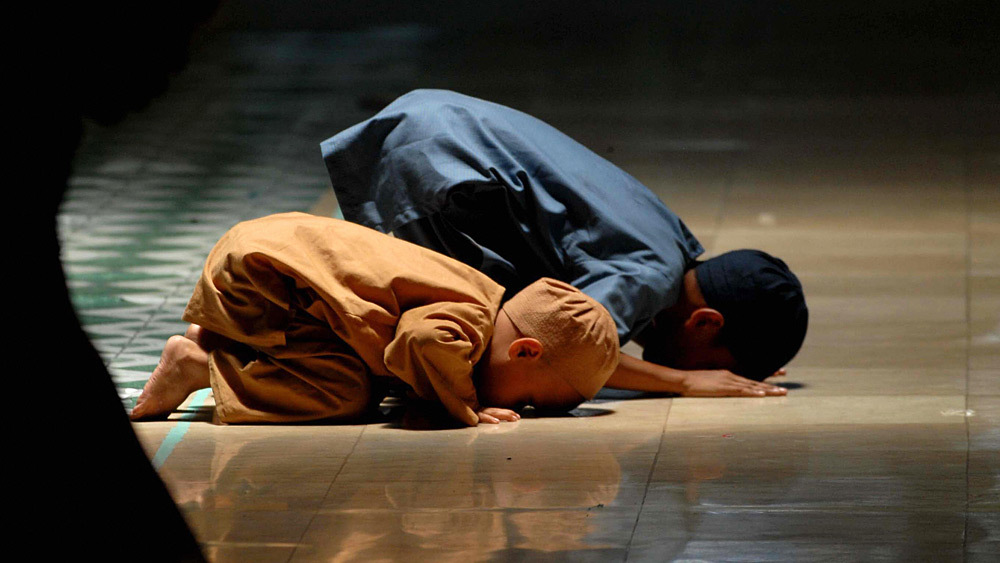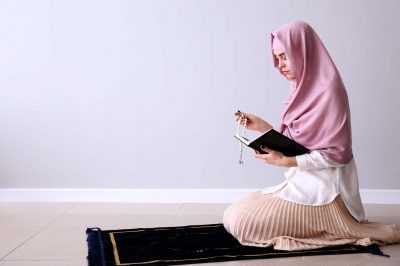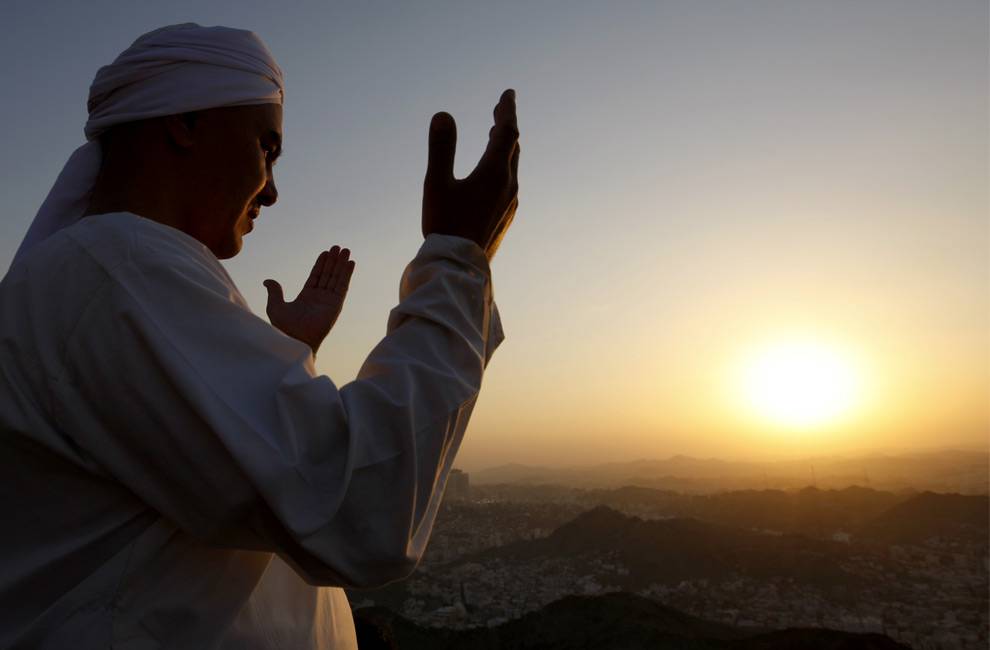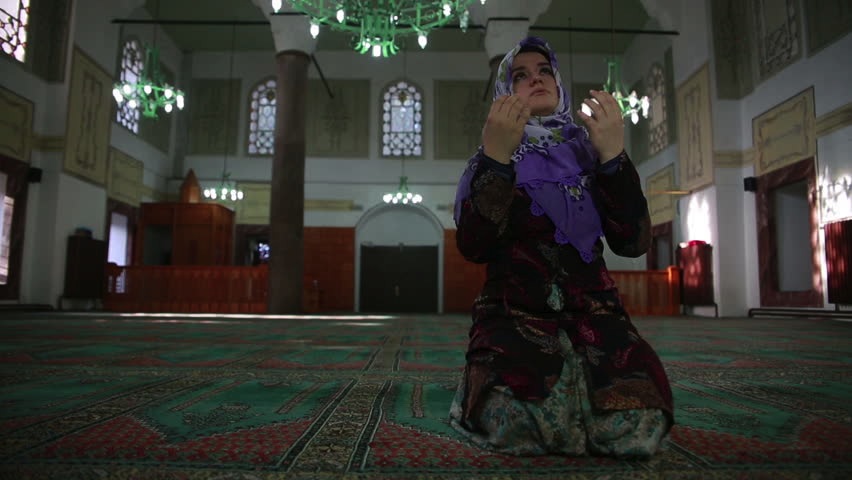As healing is from Allah, doctors and medications are merely instruments of the Healer.
Sending the Qur’an to Prophet Muhammad (Peace be upon him), Allah says that reading the Qur’an and believing in it will also cure all your physical illnesses.
The first part of this article sheds light on how the Holy Qur’an contains rules of guidance which, if followed, promote good health and healing.
Use of Meditation in Prayer and Healing
Meditation includes acts of remembrance and communications with God as ordained to us.
1. “When my servant asks you (O Muhammad) about me, (tell them) I am close to them: I listen to the prayer of each supplicant when he asks Me. Let them listen to My call and believe in Me, that they may walk in the right way” (Qur’an 2:186).
2. “Your Lord says: “Call on Me and I will answer your call” (Qur’an 40:60).
3. “Those who believe and whose hearts find rest in the remembrance of God, for in the remembrance of God do hearts find rest” (Qur’an 13:28).
4. “Remember Me, I will remember you; thank Me and reject Me not” (Qur’an 2:152).
5. “Remember thy Lord much and praise Him in the evening and morning” (Qur’an 3:41).
6. “Such as those who remember God standing, sitting and reclining” (Qur’an 3:191).
7. “and men who remember God much and women who remember God, God has prepared for them forgiveness and a vast reward” (Qur’an 33:35).
8. “O you believe! Remember God with much remembrance and glorify Him in the morning and evening” (Qur’an 33:41-42).
Sayings of Prophet Muhammad (PBUH)
Prophet Muhammad, like all other prophets of God, was engaged in the remembrance of God most of the time. He is known to have said:
1. “There is a polish for everything that removes the rust and the polish for the rust-of-heart is the dhikr (remembrance) of God.”
2. He was asked which people are most virtuous and most highly esteemed by God on the Day of Judgement. The messenger of God (P) replied: “Those who remember God often.”
3. It is narrated in a hadith Qudsi (direct revelation to Prophet Muhammad) “God Most High says I am as my servant thinks I am. I am with him when he makes mention of Me. If he makes mention of Me by himself, I make mention of him to Myself. If he makes mention of Me in an assembly, I make mention of him in an assembly better than his. If he comes closer to Me a hand span, I come closer to him arms-length, if he comes to Me walking, I come to him running.”
Thus meditation/remembrance has been a practice of all Sufi sheikhs. In the words of Sheikh al-Mursi “dhikr (meditation) pleases God, defeats and drives evil forces, increases livelihood, makes the personality more prestigious, cleanses the heart, removes the faults and saves the tongue from lying, gossip, backbiting, and hypocrisy while engaged in the remembrance of God.”

Seeking Help with Prayers
According to Imam Ghazali, illness increases faith and brings man closer to God. Knowing this nature, we are told by the Qur’an – “O you who believe, seek help with patience and prayers, as God is with those who patiently persevere” (Qur’an 2:153).
The Prophet Muhammad used to comfort the ill when he visited them and would say the following prayer:
He would also make the following prayer for his own health:
Do Prayers Work?
Yes, they do.? Dr. Larry Dossey in his book “The Healing Words” has documented the healing effects of prayer. Citing one example from the research conducted by Dr. Byrd at San Francisco General Hospital in 1988, 393 critically ill heart patients admitted to the intensive care units over a 10-month period were divided into two groups. Patients categorized into group (A) were prayed for by name until they left the hospital.? Those in group (B) were not prayed for. Those giving the prayers were not told how to pray. The results were very interesting. Those who prayed for left the hospital early, had a lower incidence of cardiac arrest, 2-1/2 times less incidence of congestive heart failure and required 1/5th fewer antibiotics. The research team also observed that prayer combined with loving care worked even better.? Men who had angina pectoris and a loving, caring wife, reported a 50% reduction in angina than men who were single or divorced.
Prayers work for us even while we are sleeping. The Prophet Muhammad advised us to say prayers from the Qur’an (Surah Ikhlas, Al Falaq, Annas and/or last verse of Al Baqra (2:286) before going to sleep.
My Own Practice
I do dhikr in all my free time, especially while driving, and I pray for myself, my family, my friends and my patients by name knowing that cure is only from God.
One time I visited a critically ill patient who had an adrenal tumor (pheochromocytoma) and was in hypotensive shock. I asked her what I could do for her and she, out of desperation (doctors had told her she wouldn’t make it) asked me to pray. So I placed my hand over the site of the tumor and made the prophetic prayer and left. The next day when I came, I was surprised to see her sitting up in bed smiling. She told me that in the evening, the radiologist x-rayed her again and found no trace of the tumor. He could not explain it but thought that the arteriogram might have infarcted the tumor.
The Sufi Practices
In the treatment of diseases, Sufis use prayers and the knowledge of specific verses of the Qur’an and the names of Allah. This is called the Science of Tawidh (Taweez). They use the science of numerology associated with Arabic alphabets. Some sample tawidh is given for illustration. One must know the healing is not in a piece of paper, words or numbers, but only from Allah. In my humble opinion, Tawidh is only a way to become God-conscious and receive His mercy as a result.
This article is from our archive, originally published on an earlier date, and highlighted now for its importance


